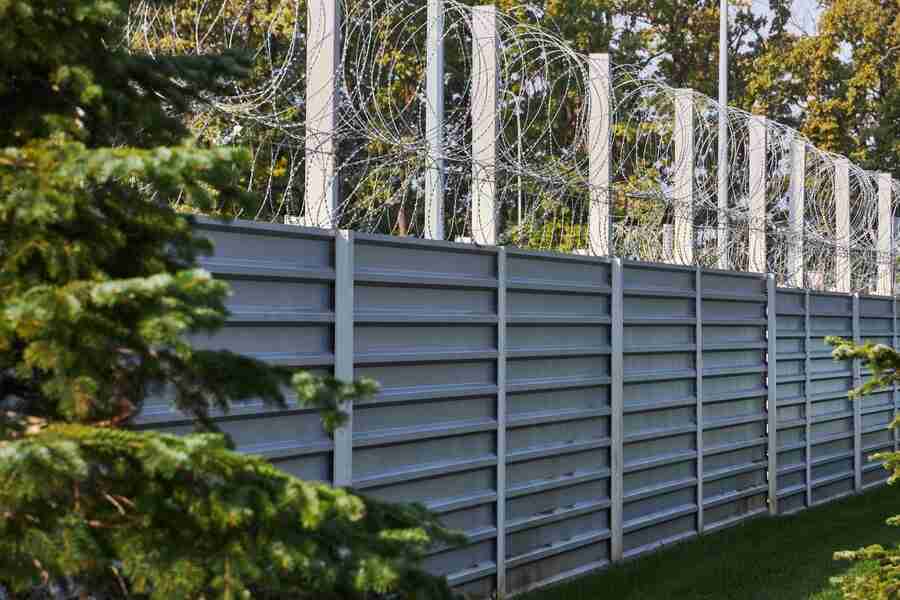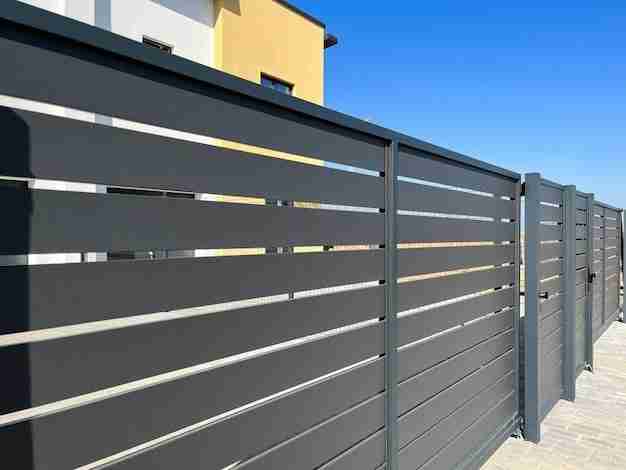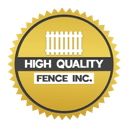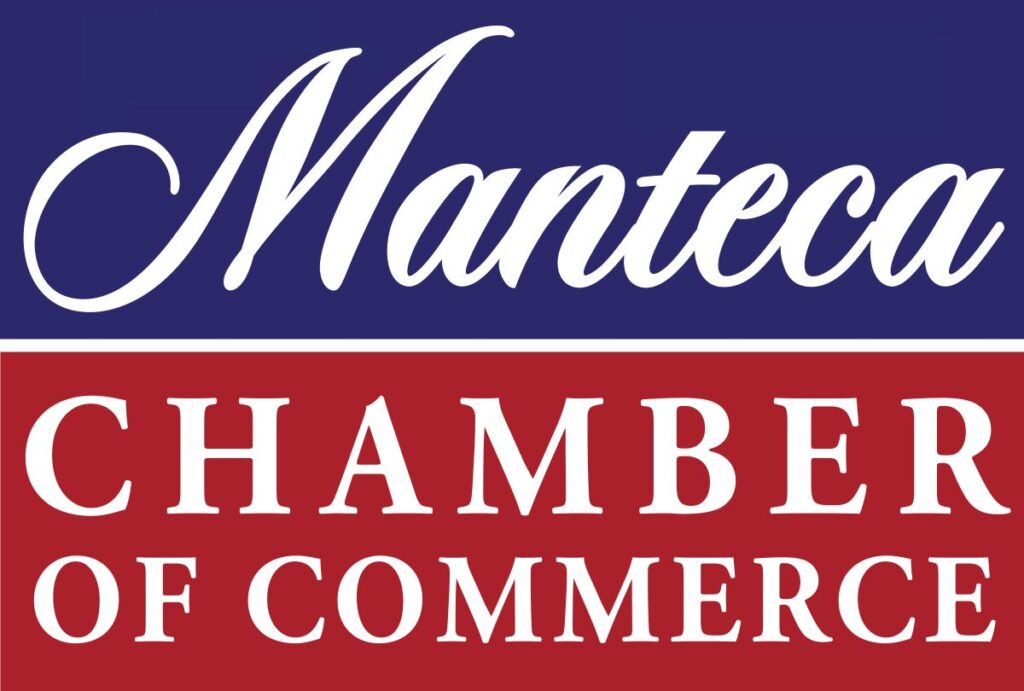
When it comes to securing your property, few options offer the blend of durability, security, and aesthetic appeal quite like Metal Fences. Whether you’re looking to enclose a residential backyard, a commercial property, or even an industrial site, metal fences stand out as a reliable choice. However, with various metal alloys available, each offering unique characteristics, selecting the right one for your needs can be a daunting task.
In this guide, we delve into the world of metal fences, exploring the different alloys available and helping you make an informed decision on the best choice for your property. From traditional wrought iron to modern aluminum and steel alloys, we’ll break down the advantages, drawbacks, and ideal applications of each, ensuring that you can confidently select the perfect metal fence to enhance your property’s security and aesthetics. So, let’s dive in and unravel the intricacies of metal fences to find the alloy that suits your needs best.
Understanding Wrought Iron
Wrought iron has a long history of use in fencing and has remained a popular choice for its timeless elegance and durability. Unlike cast iron, which is brittle and prone to breakage, wrought iron is malleable and ductile, making it ideal for shaping into intricate designs and ornamental patterns. This versatility allows for the creation of custom fences that add a touch of sophistication to any property.
One of the defining characteristics of wrought iron is its resistance to corrosion. Thanks to its low carbon content and the presence of slag fibers, wrought iron is highly resistant to rust, making it suitable for outdoor applications where exposure to moisture is inevitable. Additionally, wrought iron fences can be painted or powder-coated to further enhance their corrosion resistance and aesthetic appeal.
In terms of strength, wrought iron is renowned for its durability and resilience. It can withstand impacts and harsh weather conditions without denting or warping, ensuring long-term performance and security for your property. However, it’s essential to note that wrought iron fences may require occasional maintenance, such as repainting or rust removal, to preserve their appearance and structural integrity over time.
Alloy Selection Importance
The importance of alloy selection in metal fences cannot be overstated. Different alloys offer varying degrees of strength, corrosion resistance, and aesthetic appeal, making it crucial to choose the right one for your specific needs. Factors such as environmental conditions, desired lifespan, and budget all play a role in determining the most suitable alloy for your fence.
One of the primary considerations when selecting an alloy is its resistance to corrosion. For outdoor applications, such as fencing, exposure to moisture and other elements can cause metal to rust and deteriorate over time. Choosing an alloy with high corrosion resistance, such as stainless steel or aluminum, can help prolong the lifespan of your fence and reduce the need for frequent maintenance.
Exploring Aluminum Alloys
Aluminum alloys have emerged as a popular choice for metal fences due to their lightweight construction, corrosion resistance, and versatility. Unlike traditional wrought iron or steel fences, which can be heavy and prone to rust, aluminum fences offer a low-maintenance alternative that is ideal for outdoor applications. Additionally, aluminum alloys can be easily customized to suit various design preferences, making them a favorite among homeowners and property developers alike.
One of the primary advantages of aluminum alloys is their resistance to corrosion. Unlike iron-based alloys, aluminum does not rust when exposed to moisture, making it an ideal choice for coastal areas or regions with high humidity levels. This corrosion resistance ensures that aluminum fences maintain their appearance and structural integrity over time, reducing the need for frequent maintenance and repairs.
Benefits of Stainless Steel
Stainless steel offers numerous benefits that make it a preferred choice for various applications, including fencing. Its exceptional durability, corrosion resistance, and aesthetic appeal make it an ideal material for metal fences.
- Exceptional Durability: Stainless steel fences are incredibly durable, capable of withstanding harsh weather conditions, impacts, and wear over time. This longevity ensures that your fence remains intact and functional for years to come, providing reliable security for your property.
- Corrosion Resistance: Stainless steel is highly resistant to rust and corrosion, making it suitable for outdoor applications where exposure to moisture and environmental elements is inevitable. This corrosion resistance ensures that your fence maintains its appearance and structural integrity, even in harsh outdoor environments.
- Low Maintenance: Stainless steel fences require minimal maintenance compared to other materials, such as wood or wrought iron. With occasional cleaning and inspection, stainless steel fences can retain their appearance and functionality without the need for frequent repairs or refinishing.
- Versatility: Stainless steel fences offer versatility in design, allowing for various styles, finishes, and customization options to suit different architectural preferences and property aesthetics. Whether you prefer a sleek modern look or a more traditional design, stainless steel can be tailored to meet your specific needs.
- Environmentally Friendly: Stainless steel is a sustainable and environmentally friendly material choice for fences. It is 100% recyclable, reducing the carbon footprint associated with fence manufacturing and disposal. Choosing stainless steel for your fence also contributes to the conservation of natural resources and minimizes environmental impact.
Galvanized Steel: A Robust Option
Galvanized steel fences are known for their exceptional strength, durability, and corrosion resistance, making them a popular choice for a wide range of applications. Unlike untreated steel, which is prone to rust and corrosion when exposed to moisture and other environmental factors, galvanized steel is coated with a protective layer of zinc that provides unparalleled protection against corrosion. This galvanized coating ensures that steel fences maintain their appearance and structural integrity over time, even in harsh outdoor environments.
One of the primary advantages of galvanized steel fences is their longevity. Galvanized steel is known for its long lifespan and minimal maintenance requirements, making it a cost-effective investment for property owners. Unlike other metal alloys that may require regular painting or coating to prevent rust, galvanized steel fences can withstand exposure to moisture, UV radiation, and temperature fluctuations without deteriorating.
Considering Carbon Steel

Carbon steel is a versatile and cost-effective option for metal fences, offering a balance of strength, durability, and affordability. Unlike stainless steel, which contains chromium for corrosion resistance, carbon steel is primarily composed of iron and carbon, making it susceptible to rust and corrosion when exposed to moisture and other environmental factors. However, with proper maintenance and treatment, carbon steel fences can provide reliable security and aesthetics for a wide range of applications.
One of the primary advantages of carbon steel fences is their strength. Carbon steel is known for its high tensile strength and impact resistance, making it suitable for heavy-duty applications where security is paramount. Whether you need a perimeter fence for a commercial property or a barrier for a construction site, carbon steel offers the strength and durability to withstand harsh outdoor conditions and deter intruders.
Factors in Alloy Decision
When deciding on the right alloy for your metal fence, several factors should be taken into consideration:
- Environmental Conditions: Consider the climate and surroundings where the fence will be installed. Different alloys offer varying levels of corrosion resistance, making some more suitable for humid or coastal areas.
- Strength Requirements: Assess the security needs of your property. Alloys vary in strength, with some better suited for high-security applications like perimeter fencing for industrial sites.
- Aesthetic Preferences: Determine the desired look and style of the fence. Different alloys offer unique finishes and textures, allowing you to customize the fence to match the architectural style of your property.
- Budget Constraints: Consider the initial cost as well as long-term maintenance expenses. While some alloys may have a higher upfront cost, they may offer cost savings over time due to their durability and low maintenance requirements.
- Versatility: Evaluate the flexibility of the alloy in terms of fabrication and customization. Some alloys may be easier to work with and offer more design options than others.
Balancing Security and Aesthetics
Balancing security and aesthetics is a crucial consideration when choosing a metal fence for your property. While the primary function of a fence is to provide security and privacy, it also plays a significant role in the overall aesthetics of your property. By carefully selecting the right design, materials, and finishes, you can create a fence that not only enhances the security of your property but also adds to its visual appeal.
One of the key factors to consider when balancing security and aesthetics is the design of the fence. Different styles and configurations offer varying levels of security and visual impact. For example, tall, solid fences provide maximum privacy and security but may feel imposing and detract from the overall aesthetics of the property. On the other hand, open or ornamental fences offer a more inviting and visually appealing look but may compromise security and privacy.
In conclusion, choosing the right alloy for your metal fence is a crucial decision that requires careful consideration of various factors, including strength, durability, corrosion resistance, aesthetics, and budget. Whether you prioritize the timeless elegance of wrought iron, the sleek modernity of aluminum, or the unmatched strength of steel, there’s an alloy to suit every style and application.
By consulting with a fencing professional and weighing the advantages and limitations of each option, you can select a fence that not only meets your practical requirements but also complements the architectural style and aesthetic preferences of your property. Invest in a metal fence that will stand the test of time, enhancing the security and aesthetics of your property for years to come.
For expert advice and high-quality metal fences tailored to your specific needs, contact High Quality Fence today at 209-815-9015 or email us at info@highqualityfence.com. Let us help you enhance the security and beauty of your property with a durable and stylish metal fence solution.


